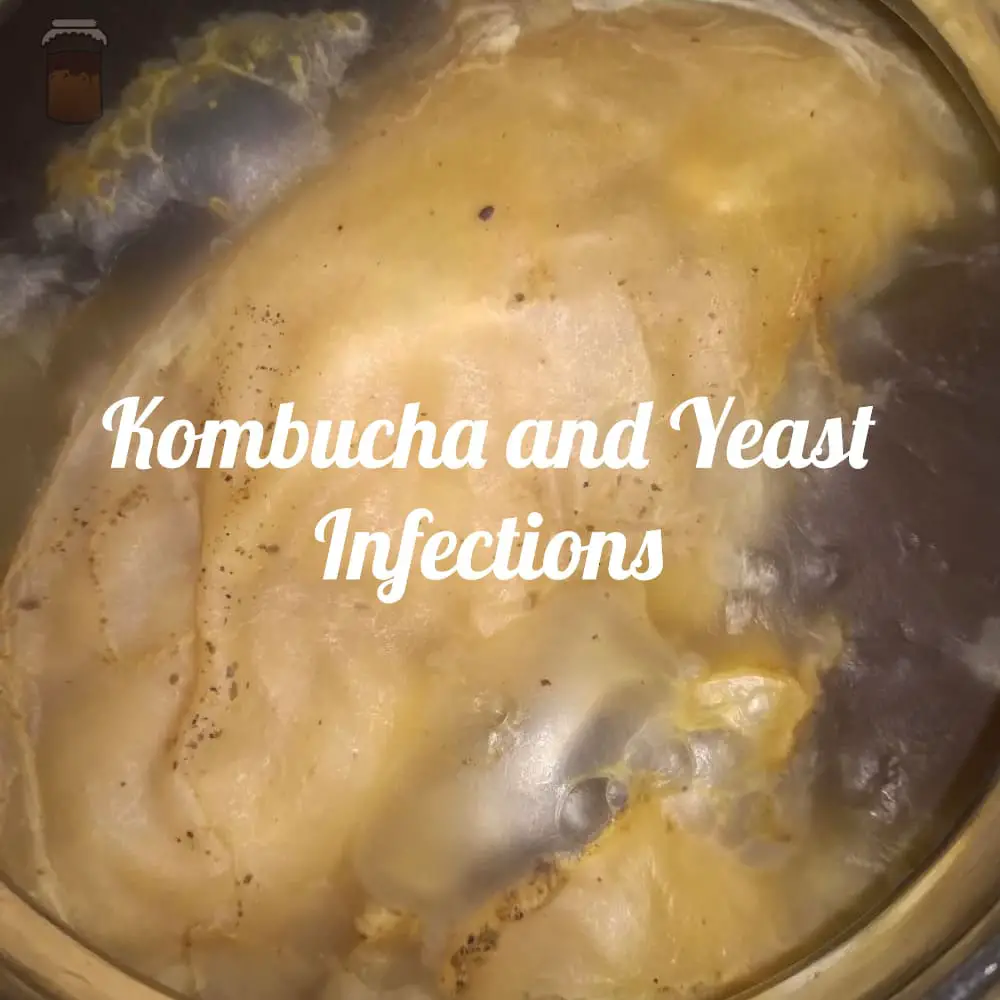
Yeast infections have become a widespread problem over the years. However, given their nature, people usually only notice them once they have advanced.
In that sense, some have proposed that kombucha can cause them since it is known to contain yeast bacteria in its composition.
However, can kombucha cause yeast infections? In general, no, because the yeasts present in this fermented beverage are considered probiotic (not all) and have even shown favorable in vitro results for controlling pathological bacteria such as candida albicans.
That said, there have been some reported cases where people argue that kombucha has triggered symptoms of yeast infections. However, there is no certainty that kombucha is the cause.
Of course, to understand this, it is necessary to deepen the explanation, which we will deal with from here.
Contents
Does kombucha contain pathogenic yeast fungi?
Kombucha does not contain any pathogenic yeast fungi. Moreover, it houses a specific yeast, mainly Saccharomyces, which has quite important properties and, in no case, belongs to the candida group, which is responsible for the most common infections.
Kombucha has yeasts of the non-pathogenic type; that is, they are not offensive to the body. But, kombucha is a colony of bacteria and yeast, which seems to make it prone to causing yeast fungal infections.
Fortunately, this is not the case, and infections may be more justifiable by hygiene issues in handling kombucha than by the microorganisms of this one.
The yeast Schizosacharomycodes is considered the enemy of candida albicans since they compete with each other for space within your body. If Schizosacharomycodes is successful, it will gradually expel candida from your immune system. [1]
From that perspective, Schizosacharomycodes is an organic cleaner that removes candida from your systems. That would leave your body in healthier conditions and less likely to develop other ills.
Can people with excess candida growth ingest kombucha?
It is not recommended, as people with the accelerated growth of candida yeast may have complications, even when this fermented does not have a pathogenic yeast and can help prevent candidiasis.
Scientifically speaking, in most of the research that has been done, it is always recommended not to drink kombucha made at home in immunocompromised people, and it is believed that it can potentially promote the growth of pathogens.
In a vital organism, kombucha can be used to prevent candidiasis, thanks to the fact that it produces gluconic acid, which fights and reduces the action of fungal infections. [2]
In addition, at the same time, this fermented also has butyric acid, which, together with gluconic, strengthens the walls of the intestines.
In theory, studies have been done (not in people) isolating the antimicrobial effect that kombucha has to combat several strains of the candida family, where it is concluded that kombucha may be helpful. [3]
However, there are cases where it has been speculated that the consumption of kombucha has caused an accelerated growth of candida yeast, assuming that the contact of kombucha gives candida an extra degree of yeast, so its growth multiplies exponentially. Still, those are only speculations, and there is nothing proven.
Based on the above, if you know or are aware that you suffer from the accelerated growth of candida, kombucha may not be a good ally, and the best decision, in this case, would be to visit a health specialist who can verify if you can drink kombucha.
Under what other conditions might kombucha cause yeast infections?
We already made it clear that if you have problems with the acceleration of candida, you should refrain from taking kombucha. However, there are other conditions related to such yeast that could also compromise you if you ingest it:
Vaginal yeast infections
Yeast infections in the vagina are one of the most common that women face. They are also known as «vaginal candidiasis» precisely because it is the same candida yeast behind everything.
If you face this ailment, kombucha may not be your best ally. With its consumption, you will only increase the degree of the problem by accelerating the action of candida. And considering how delicate the vaginal area is and how difficult it is to treat it, we recommend you not take any risks.
Acne
There are many forms of acne. However, some of them are based on the proliferation of fungi. Thus, adding kombucha to your body can be counterproductive, as it would give this problem greater strength.
The type of acne affecting you may not be any of those caused by fungi. In that case, you are fortunate. But it can also happen that you do not know which form of acne you suffer. So if you find yourself in that situation, verifying it with a specialist is best. Then you will be able to know if kombucha suits you or not.
I have written an article that covers this topic in depth, so feel free to check if kombucha can cause acne by clicking the link.
Is kombucha good or bad for yeast infections?
Well, it depends a lot on your body. The effect that kombucha can have on your body is relative and also depends a lot on your intestinal health.
For example, after treatment with antibiotics, your intestinal flora is damaged and exposed to pathogenic microorganisms that try to colonize this space that has been left empty, and kombucha can have an effect to prevent this.
By the way, we have an article about kombucha and antibiotics that may interest you.
While we know that kombucha has interesting health-related properties, many of these aren’t tested in humans, only in rats or in vitro, so we can’t say that kombucha will cure yeast infections.
In conclusion, kombucha may have a positive effect or no effect on yeast infections you may have. Kombucha is not a proven cure under any parameters, so the medical treatments established for this type of situation must be followed.
With everything we have said, we can now close the issue of this opportunity. But, of course, we still have much more information about kombucha, so we leave these related articles quite interesting.
References
[1] https://www.ncbi.nlm.nih.gov/pmc/articles/PMC5963212/






